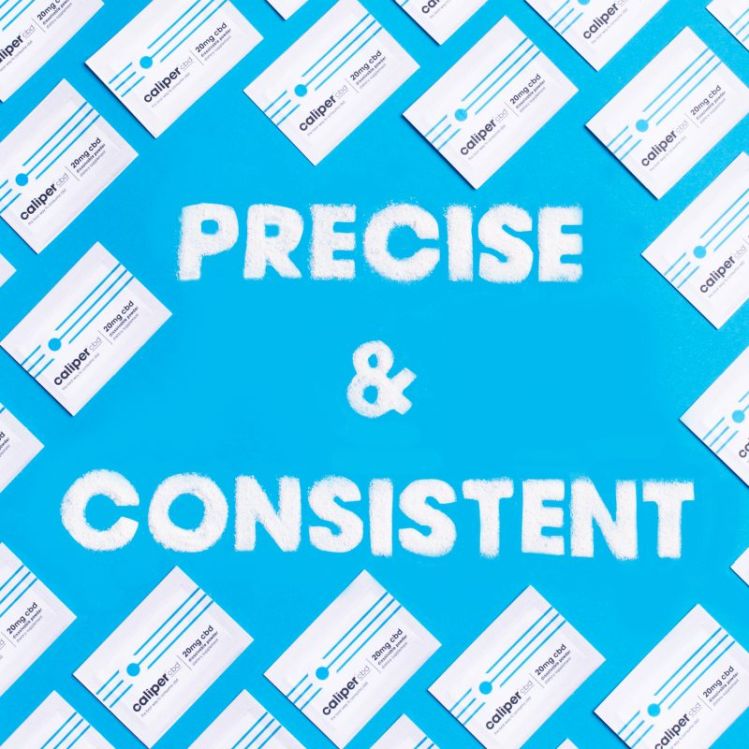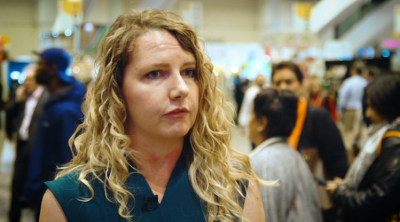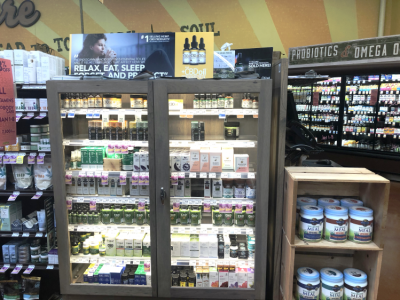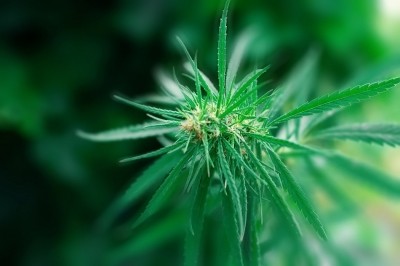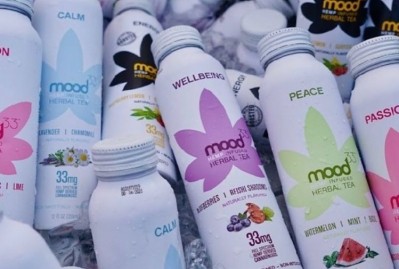Caliper CBD CEO: Cut-off between drugs and food for CBD should be around dosage, not isolate vs extract
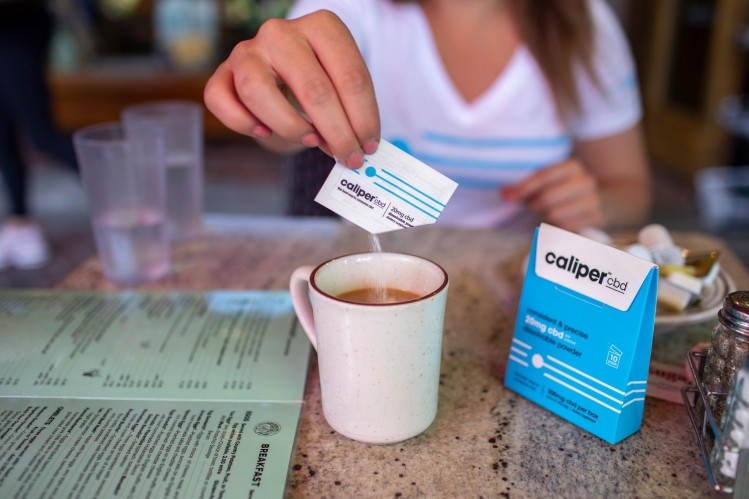
"But that’s like arguing that penicillin on its own should be illegal, but penicillin plus three other antibiotics that we don’t know much about should be legal,” says Justin Singer at Caliper Foods, which is using 20mg of water-soluble CBD isolate in his drink mixes. “It doesn’t make any sense.”
He told FoodNavigator-USA: “The FDA hasn’t distinguished between isolates and extracts. And extracts still contain CBD. The fact that they also contain other things doesn’t make them safer. Isolates can be characterized and analyzed and you know what’s in there, whereas the full spectrum stuff, you don’t know what’s in there, and if you’re not looking for it, you don’t find it.”
If there is to be a two-tiered market enabling drugs and supplements/foods to co-exist, the line between the two should focus on dosages, he claims. “I see a distinct demarcation line on concentrations and serving sizes, so perhaps they allow up to 100mg of CBD that can live in food and then you have pharma doses, which might be up to 750mg or even 1,500mg.”
Euphemistic branding
Meanwhile, brands that say, ‘We’re not selling CBD, we’re selling hemp extracts,’ are being disingenuous, he argues, given that they are using hemp that has specifically been cultivated for its high CBD content, while the milligrams highlighted on the front of pack refer to CBD, even where brands they don’t explicitly say so in order to avoid regulatory scrutiny.
Put another way, regardless of how euphemistic the branding, consumers are buying products with hemp extracts primarily because they contain CBD, even if they believe there is some additional benefit conferred by the other components, he says.
'Bad actors are going full speed ahead and good actors are nervous'
As for the FDA, he says, its stance of warning consumers about liver damage (which was something identified as a possible risk in high doses of CBD used in drug trials) and sending out warning letters to bad actors, but not engaging in widespread enforcement action, is making things worse.
“It’s created enough uncertainty to keep responsible and good actors out of the market but is not being strict enough on enforcement to force bad actors out, so bad actors are going full speed ahead and good actors are nervous. But if FDA really believed this is a danger they would have issued recall notices, not warning letters to 15 small companies operating on the edge of the space.
“It’s like the food version of abstinence education. It doesn’t work, it doesn’t stop people from consuming CBD, it’s just ensuring that when they do consume it, it’s just less safe than it would otherwise be.”
That said, the pressure on the FDA to find a regulatory path forward is growing by the day, he argues.
“Politically the FDA’s position is untenable, because you’ve got Kentucky and Tennessee on track to plant 40,000 acres of hemp apiece next year. Either it’s legalized for food and supplements or [Senators] Mitch McConnell (R-KY) and Lamar Alexander (R-TN) are in for a world of hurt.”
'There’s a balance between solubility and bitterness'
Singer - who has been working with cannabis for five years via his other company Stillwater Brands and also supplies his water soluble CBD to other companies – launched the Caliper CBD brand two months ago online, and is having conversations with bricks & mortar retailers about introducing it to stores in 2020.
Caliper uses 20mg of CBD isolate in its drink mixes, says Singer, both because it seemed to be the sweet spot in terms of delivering a discernible effect (although responses can vary very widely between individuals) and because he can block the bitterness of the CBD at this dosage level (while isolates don’t have the ‘earthy’ or ‘green’ taste of hemp, they can be bitter).
“It comes down to process, there’s a balance between solubility and bitterness. The smaller the particle seize the better the dispersibility – and we disperse in all temperatures, but the smaller the particle size, the greater the surface area so you get more bitterness.”
Bioavailability
He added: “The key difference with us is that we have thought of ourselves from the beginning as a food company. We have a food science team that includes a food technologist from Ingredion and senior scientist at Mars and a quality and food safety team that includes someone that was a vice president at Eurofins and was at Merieux [Nutrisciences] before that.
“We completed a scoping study into the pharmacokinetics of CBD at Colorado State University to prove greater bioavailability in humans. Now we’re rolling that out into a much larger study, but the initial study showed a 450% lift in bioavailability of our product vs a tincture – so we’ve talking about levels observed in people’s blood streams.”
Anecdotal evidence
Asked about efficacy, he acknowledges that players in this space cannot point to double blinded placebo-controlled human clinical studies that prove that low doses of CBD will confer the kinds of benefits that consumers are reading about on blogs, and says it is a “general purpose compound and people react differently.”
But if there’s no clinical evidence that taking low doses of CBD will confer a benefit, is this an industry built on a hope and a prayer that could come crashing down as consumers begin to wonder what they are actually getting for their money?
While there are clearly bad actors out there that are selling products that either don’t contain the CBD they claim, or are delivering it in a form that is not very bioavailable, he says, many consumers are buying these products again and again because they deliver something, whether it be pain relief, better sleep, or a sense of calm.
“Some people swear by it for pain relief and others say it is like taking a couple of deep breaths, but it’s anecdotal, there’s no doubt about it, and you don’t know how much is placebo and how much is the real thing.”
Selling CBD in an uncertain regulatory climate
So what’s it like selling a product built around an ingredient that the FDA says is not a legal dietary ingredient?
“The supply chain is uncertain, everyone is scared for good reason and people are confused. McConnell says go out and grow this stuff after the Farm Bill passed and then the FDA says whoa, wait a minute," says Singer.
“So we had some CPG customers on the ingredient side of our business that were very gung ho about this in the middle of the year, and then there was all this confusion among distributors and retailers and then some of them came back and said we want full spectrum because it might be less risky on the regulatory side [although the FDA has not distinguished between isolates and extracts in its warning letters].”
He added: “100% of retailers see the opportunity and if FDA comes out and says CBD is allowed in the food supply under certain conditions, one month later you’d see it showing up in a quarter of stores. But right now, they want partners that don’t increase the risk they feel they are already taking.
“We say that working with us is the least risky way to take this risk, because we’re done the work to deliver a safe consistent product. I think the challenge is that retailers still don’t know all the right questions to ask [suppliers] yet.”
I think there’s going to be a good 3-5 years of experimentation
Asked how he anticipated things might play out, he added: “I think there’s going to be a good 3-5 years of experimentation. You’ll see new formats, more shots, more powders, and some more frankly weird things like CBD pillowcase.”
Interested in CBD from a global perspective? Our European counterpart FoodNavigator.com is co-hosting a two-day CBD Global Summit in London, 16-17 March 2020. Get all the details HERE.

